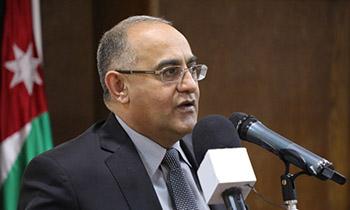- Local News
- Thu-2020-06-18 | 09:43 pm

The plan, designed by the ministry and approved by the Cabinet, aims at developing a programme to improve society's ability to deal with information and news sources, as well as digital technology tools.
Speaking during a press conference at the Prime Ministry, Tweissi said that the initiative aims to shift from a prevailing view of media education as a tool for protection and defence to a "deeper and more comprehensive understanding”, describing it as a tool for empowerment, participation and innovation.
Noting that the strategic goal of the plan is to incorporate the concepts and skills of media and information education into the educational system at the school and university levels, the minister highlighted that the plan's adopted perspective includes understanding media, contemporary communication, news and information literacy and digital citizenship to create public trust, to combat rumours and misinformation.
This perspective enhances the principles of human rights, freedom of expression and gender justice, the minister said.
The plan works to empower youth to counter harmful side-effects of media, digital media and social networks, which appear through unprofessional uses. It also aims to address inappropriate and harmful media content, mainly including false news, rumours, hate speech and extremist and violent content.
The goals of the plan also include supporting young people's freedom of expression, critical thinking, innovation and leadership, along with underpinning the Kingdom's gender equality efforts and bridging the gap of women’s political, social and economic participation.
The executive plan covers four fields. The first field, educational systems on the school level, aims at reaching 90 per cent of the Kingdom's schools and providing training for 3,000 teachers, as well as introducing the concepts of media and information skills into curricula.
The second field, education on the university level, aims at building the capacities of university staff members and urging universities to develop courses on the subject, along with creating 30 students clubs in the field of media and information education.
The third field, cultural and youth institutions, aims at providing training and building capabilities of the members of the ministry’s affiliate centres nationwide.
In the fourth field, civil society and cities, the plan aims at managing scholarships targetting civil institutions interested in launching new initiatives in the sphere of media and information education, as well as implementing awareness campaigns in this arena. It also aims at developing a free digital platform to provide training.








